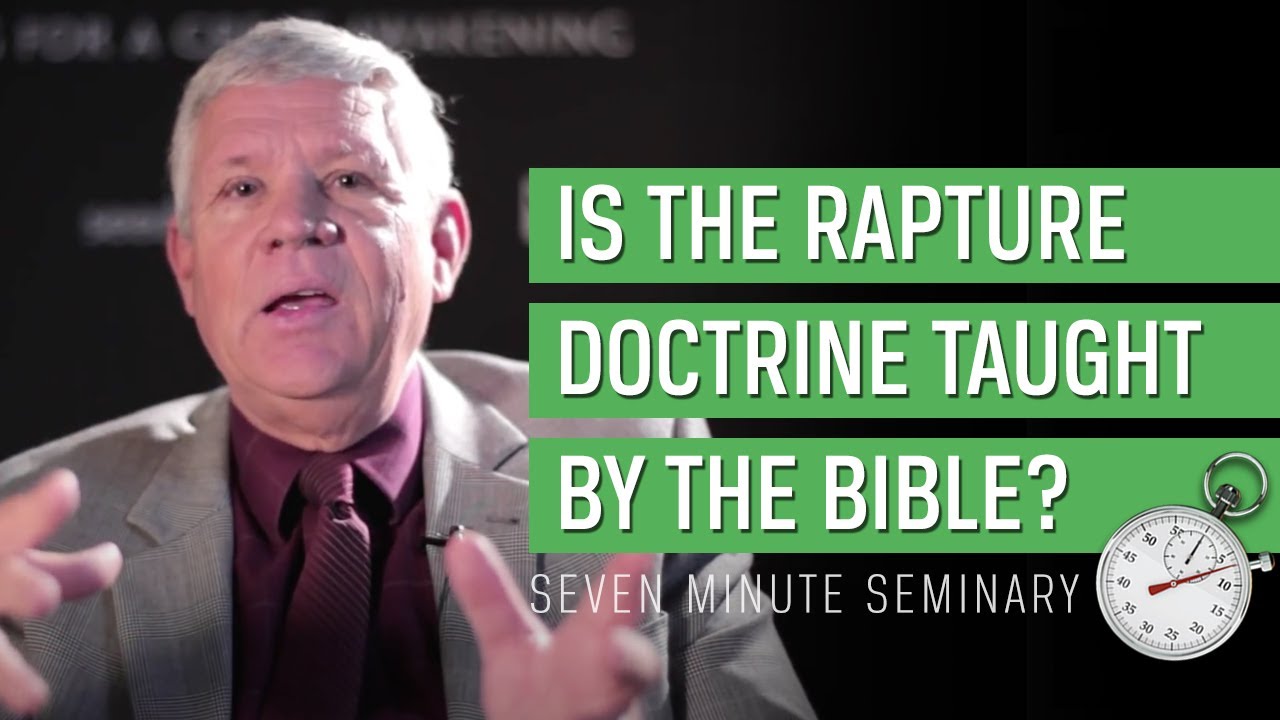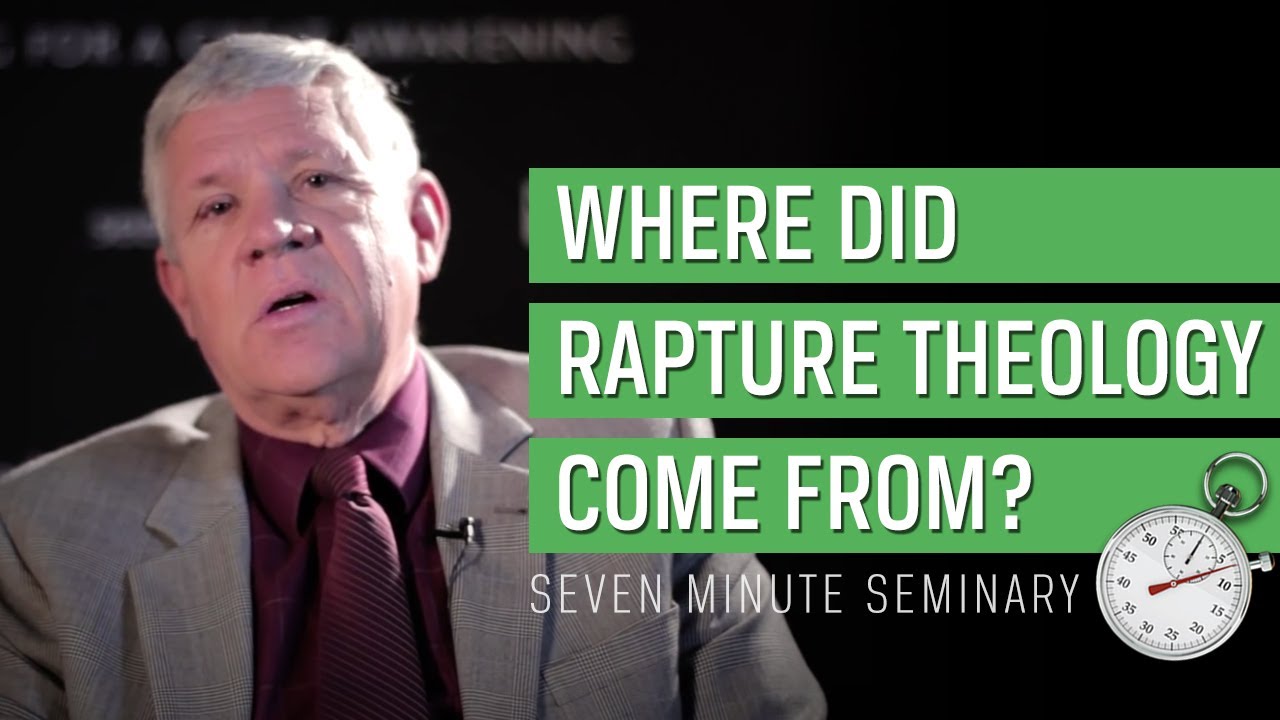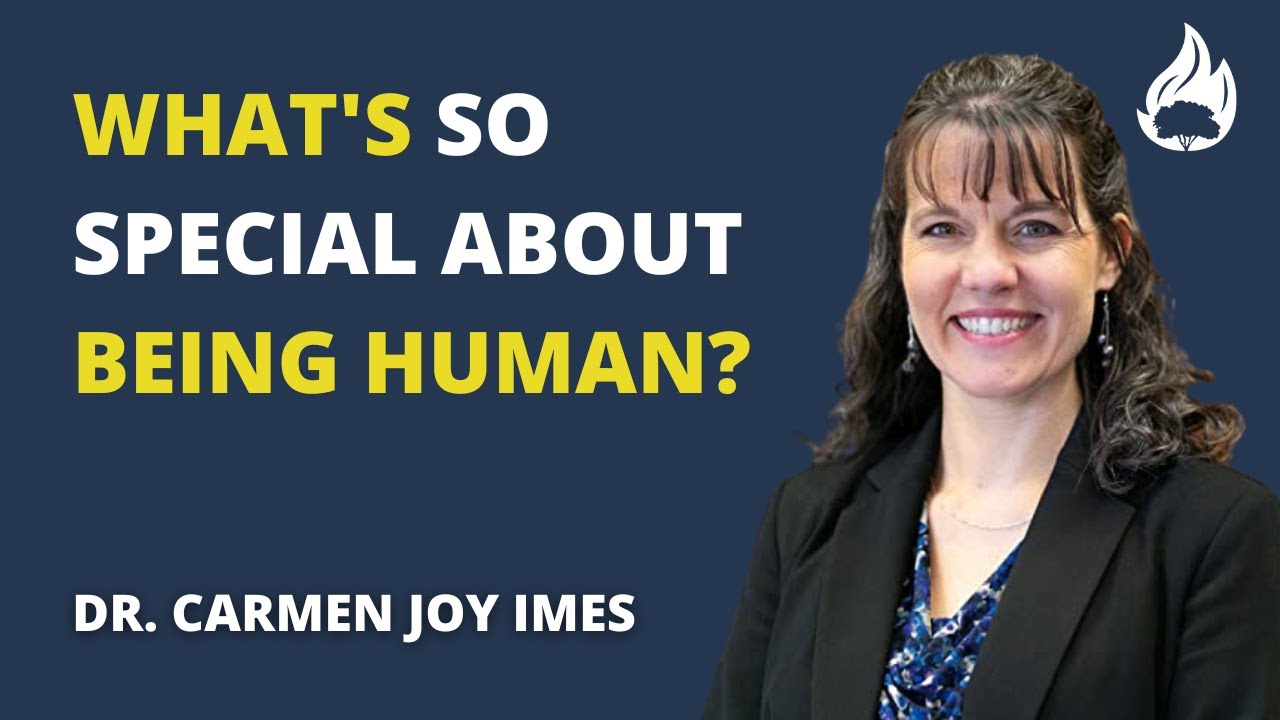Matthew 24:36-44 says,
Now concerning that day and hour no one knows—neither the angels of heaven nor the Son—except the Father alone. As the days of Noah were, so the coming of the Son of Man will be. For in those days before the flood they were eating and drinking, marrying and giving in marriage, until the day Noah boarded the ark. They didn’t know until the flood came and swept them all away. This is the way the coming of the Son of Man will be. Then two men will be in the field; one will be taken and one left. Two women will be grinding grain with a hand mill; one will be taken and one left. Therefore be alert, since you don’t know what day your Lord is coming. But know this: If the homeowner had known what time the thief was coming, he would have stayed alert and not let his house be broken into. This is why you are also to be ready, because the Son of Man is coming at an hour you do not expect.
As I considered this passage in light of the teaching about the Rapture, it helped me to slowly think through the story of Noah that Jesus uses to anchor his teaching.
In the days of Noah, who was taken? The wicked people who were swept away in the flood.
Who remained on earth? Noah and his family.
So if this passage does teach a rapture, then we do not want God to take us. When the Son of Man returns to earth, we want to be left here so that we can be with him.
However, in Tim LaHaye’s books, it is the opposite: the believers are taken, and the “left behind” are unbelievers.
In his Matthew commentary in the New International Greek Testament Commentary series, John Nolland summarizes the significance of this passage:
Whereas 24:36 has asserted the unknowability of the timing of the coming of the Son of Man, vv. 37–44 press the need, in light of this necessary ignorance, for constant readiness.
That seems to be the most straightforward reading. What does Jesus want his disciples to do in light of his teaching?
-
“Be alert” (v. 42)
-
“Be ready” (v 44)
In each case, why? Because we don’t know when the Lord will return.
Notice also how Nolland mentions “the coming of the Son of Man.” That’s because this passage is about Jesus’ second coming.
How do we know that? We look at the broader context. We go back to Matthew 24:3, where this event begins. There we read:
While Jesus was sitting on the Mount of Olives, the disciples approached him privately and said, “Tell us, when will these things happen? And what is the sign of your coming and of the end of the age?”
As Nolland comments here, “In the NT only Matthew uses the phrase ‘completion of the age’ (συντελεία τοῦ αἰῶνος) — see at 13:39. This will be the time when the Son of Man arranges the final separation of the wicked from the righteous.”
In his Matthew commentary, D.A. Carson notes,
“The end of the age” is used six times in the NT (13:39, 40, 49; 24:3; 28:20; Heb 9:26), five of which are in Matthew and look to final judgment and the consummation of all things. (Heb 9:26 sees the cross as introducing the coming age and thereby marking out “the end of the ages” [NIV].) Parousia (“coming,” GK 4242) is found twenty-four times in the NT, four of which are in Matthew 24 (vv. 3, 27, 37, 39). The term can refer to “presence,” “arrival,” or “coming” — the first stage of “presence” — and need not have eschatological overtones (2Co 7:6; 10:10). Yet parousia is closely tied with Jesus’ glorious “appearing” or “coming” at the end of human history.
So here’s how I’d summarize Matthew 24:36-44:
The timing of Jesus’ return is beyond our comprehension. When he returns, he will take away the wicked and remain with the faithful. So be alert, be ready, and live in anticipation for the return of Christ.
This video by Dr. Ben Witherington is also helpful (referenced in Revelation for the Rest of Us):
And this video provides some historical context on this theology:
I look forward to learning from other insights and perspectives.
(This post is continuing the conversation from Does John 14:1-3 support the rapture? - #4 by lakshmi)


